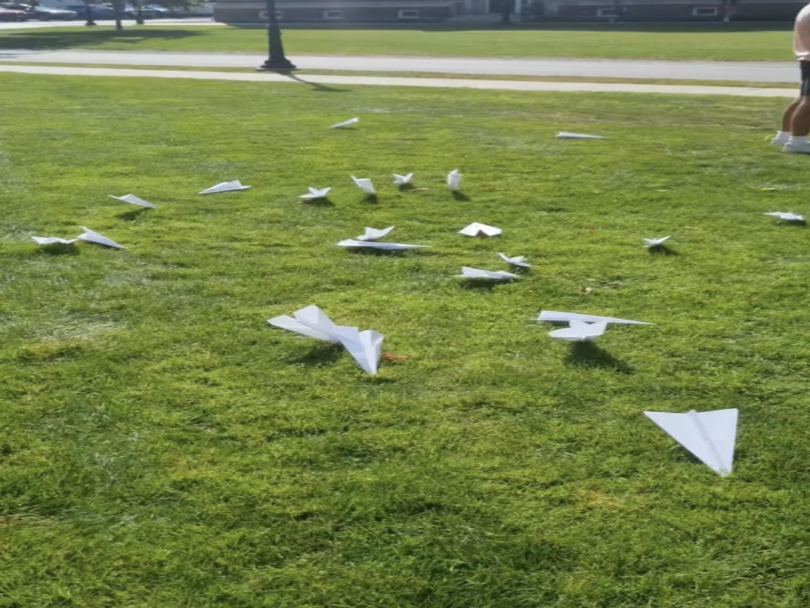

Mario Lopez


What courses I'm taking this term
Hey y'all,
In today's blog, I want to talk about what the quarter system is like at Dartmouth and what an example of a first-year student's class schedule can look like.
Dartmouth has a unique approach to academics and learning by following a course structure different from the semester system. Dartmouth, instead, follows what is known as the D-Plan. The D-Plan is a student-centric academic program focused on allowing students the flexibility to pursue internships and explore different fields of study through a set of three to four immersive 10-week courses. Dartmouth students have the ability to alter and shape their own D-Plan after the end of their first year at Dartmouth.
Every student at Dartmouth will have a total of 12 'on-terms' at Dartmouth, which refers to quarters where the student is present on campus or participating in a Study Abroad or Exchange Program sponsored by Dartmouth. Dartmouth students are also required to spend an on-term at Dartmouth over the summer quarter—most students do it the summer after their sophomore year. This means that every calendar year, Dartmouth runs a total of four terms (winter, spring, summer, and fall), meaning Dartmouth is full of learning year-round!
As I previously mentioned, most students take around three courses every term at Dartmouth. However, first-year students only are allowed to take three courses during their first fall term. This fall quarter I decided to venture into new fields of study I hadn't had any exposure to before and picked "Economics 1: The Price System," "German 1: Introductory German," and "Math 9: Multivariable Calculus with Linear Algebra." This has been my experience so far with my courses this term!
This is one of Dartmouth's most popular introductory courses to economics, which comes as no surprise due to Dartmouth's strong Department of Economics and attentive faculty. The class covered the basics of economics such as how companies decide on prices, the different cost structures of competitive and uncompetitive firms, different types of competition, and the most important concept: how to build a paper airplane (see photo below).
During the first week of classes, our professor—almost all of Dartmouth's classes are taught by professors and not graduate students—came up with the brilliant idea to teach my section about scarcity by separating the class into different groups ranging from two to nine students each and making us compete in a paper airplane competition. The objective was to build and fly the most paper airplanes possible, where the winning group would be the group with the most paper airplanes flown by the end of the time given.
However, the catch was that each group could only have up to two pieces of paper at a time, no matter how many members the group had. My group consisted of five people and unsurprisingly we won the competition by a large margin!

This term, I decided I wanted to start learning a new language, and I decided to explore Dartmouth's awesome German Department. Learning a language at Dartmouth is such an interesting experience since it is immersive and incredibly interactive. Language courses consist of small class sizes ranging from ten to fifteen students taught by a professor specialized in the language; class sessions are filled with students practicing their speaking and listening skills.
Students also have the opportunity to improve their speaking and listening skills even further by participating in something called "Drill." Drill sessions are times throughout the week when students learning the same language gather and practice speaking, listening, and conjugation skills—under a student instructor—to improve their language skills. German has been an incredibly fun class, and I've been able to get to know my professor and many of my classmates!
Math 9: Multivariable Calculus with Linear Algebra
I decided to take Math 9 for my fall term since I was able to place out of introductory math classes through my AP Scores from high school. I elected to take Math 9 since I wanted to keep expanding my knowledge of calculus while learning more about linear algebra.
Like most other classes, Math 9 at Dartmouth is also a relatively small class where students have the opportunity to get to know their classmates as well as interact and build relationships with their professors.
Dartmouth provides ample opportunities for students to explore their fields of interest as well as explore new classes they might be curious about. Even if a student doesn't like the class they're taking one term for any reason, they only have to be in it for 10 weeks for it to be over. With all that said, if I had to pick one out of all my amazing classes as my favorite, I would definitely pick Econ 1 as my favorite class due to the interactive nature of the class as well as the professor!
Until next time,
Mario
Posts You Might Like

This blog post is dedicated to my mom, the heart of who I am today—and my time at Dartmouth.


Read more about the Ling 1 Introductory Linguistics class!


Read on to learn about the Dartmouth Outing Club's Surf Club and my adventure to the Atlantic.


If you're like I was—staring at your closet wondering what "essentials" actually means—here is what I packed, what I'm grateful I brought, and what I now know you can leave behind.


What orientation is like for first years at Dartmouth!


Come learn about the classes I'm taking this summer!


New England's most iconic clock tower, captured from every angle and in every season! From sunrises to snowfalls, here's Baker Tower in all its glory. A visual love letter to Dartmouth's most timeless landmark.


When it came time to figure out where I'd be living for the summer, I wanted to try something different...


At Dartmouth, students have the opportunity to fuse two different academic studies and programs into a single major. Learn more about my modified major here!
